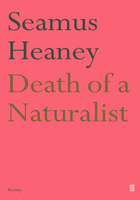On the first of May, we had all-i.e. the twenty boarders and the four teachers-notice to rise at five o'clock of the morning, to be dressed and ready by six, to put ourselves under the command of M. lé Professeur Emanuel, who was to head our march forth from Villette, for it was on this day he proposed to fulfil his promise of taking us to breakfast in the country. I, indeed, as the reader may perhaps remember, had not had the honour of an invitation when this excursion was first projected-rather the contrary; but on my now making allusion to this fact, and wishing to know how it was to be, my ear received a pull, of which I did not venture to challenge the repetition by raising, further difficulties.
"Je vous conseille de vous faire prier," said M. Emanuel, imperially menacing the other ear. One Napoleonic compliment, however, was enough, so I made up my mind to be of the party.
The morning broke calm as summer, with singing of birds in the garden, and a light dew-mist that promised heat. We all said it would be warm, and we all felt pleasure in folding away heavy garments, and in assuming the attire suiting a sunny season. The clean fresh print dress, and the light straw bonnet, each made and trimmed as the French workwoman alone can make and trim, so as to unite the utterly unpretending with the perfectly becoming, was the rule of costume. Nobody flaunted in faded silk; nobody wore a second-hand best article.
At six the bell rang merrily, and we poured down the staircase, through the carré, along the corridor, into the vestibule. There stood our Professor, wearing, not his savage-looking palet?t and severe bonnet-grec, but a young-looking belted blouse and cheerful straw hat. He had for us all the kindest good-morrow, and most of us for him had a thanksgiving smile. We were marshalled in order and soon started.
The streets were yet quiet, and the boulevards were fresh and peaceful as fields. I believe we were very happy as we walked along. This chief of ours had the secret of giving a certain impetus to happiness when he would; just as, in an opposite mood, he could give a thrill to fear.
He did not lead nor follow us, but walked along the line, giving a word to every one, talking much to his favourites, and not wholly neglecting even those he disliked. It was rather my wish, for a reason I had, to keep slightly aloof from notice, and being paired with Ginevra Fanshawe, bearing on my arm the dear pressure of that angel's not unsubstantial limb-(she continued in excellent case, and I can assure the reader it was no trifling business to bear the burden of her loveliness; many a time in the course of that warm day I wished to goodness there had been less of the charming commodity)-however, having her, as I said, I tried to make her useful by interposing her always between myself and M. Paul, shifting my place, according as I heard him coming up to the right hand or the left. My private motive for this manoeuvre might be traced to the circumstance of the new print dress I wore, being pink in colour-a fact which, under our present convoy, made me feel something as I have felt, when, clad in a shawl with a red border, necessitated to traverse a meadow where pastured a bull.
For awhile, the shifting system, together with some modifications in the arrangement of a black silk scarf, answered my purpose; but, by-and-by, he found out, that whether he came to this side or to that, Miss Fanshawe was still his neighbour. The course of acquaintance between Ginevra and him had never run so smooth that his temper did not undergo a certain crisping process whenever he heard her English accent: nothing in their dispositions fitted; they jarred if they came in contact; he held her empty and affected; she deemed him bearish, meddling, repellent.
At last, when he had changed his place for about the sixth time, finding still the same untoward result to the experiment-he thrust his head forward, settled his eyes on mine, and demanded with impatience, "Qu'est-ce que c'est? Vous me jouez des tours?"
The words were hardly out of his mouth, however, ere, with his customary quickness, he seized the root of this proceeding: in vain I shook out the long fringe, and spread forth the broad end of my scarf. "A-h-h! c'est la robe rose!" broke from his lips, affecting me very much like the sudden and irate low of some lord of the meadow.
"It is only cotton," I alleged, hurriedly; "and cheaper, and washes better than any other colour."
"Et Mademoiselle Lucy est coquette comme dix Parisiennes," he answered. "A-t-on jamais vu une Anglaise pareille. Regardez plut?t son chapeau, et ses gants, et ses brodequins!" These articles of dress were just like what my companions wore; certainly not one whit smarter-perhaps rather plainer than most-but Monsieur had now got hold of his text, and I began to chafe under the expected sermon. It went off, however, as mildly as the menace of a storm sometimes passes on a summer day. I got but one flash of sheet lightning in the shape of a single bantering smile from his eyes; and then he said, "Courage!-à vrai dire je ne suis pas faché, peut-être même suis je content qu'on s'est fait si belle pour ma petite fête."
"Mais ma robe n'est pas belle, Monsieur-elle n'est que propre."
"J'aime la propreté," said he. In short, he was not to be dissatisfied; the sun of good humour was to triumph on this auspicious morning; it consumed scudding clouds ere they sullied its disk.
And now we were in the country, amongst what they called "les bois et les petits sentiers." These woods and lanes a month later would offer but a dusty and doubtful seclusion: now, however, in their May greenness and morning repose, they looked very pleasant.
We reached a certain well, planted round, in the taste of Labassecour, with an orderly circle of lime-trees: here a halt was called; on the green swell of ground surrounding this well, we were ordered to be seated, Monsieur taking his place in our midst, and suffering us to gather in a knot round him. Those who liked him more than they feared, came close, and these were chiefly little ones; those who feared more than they liked, kept somewhat aloof; those in whom much affection had given, even to what remained of fear, a pleasurable zest, observed the greatest distance.
He began to tell us a story. Well could he narrate: in such a diction as children love, and learned men emulate; a diction simple in its strength, and strong in its simplicity. There were beautiful touches in that little tale; sweet glimpses of feeling and hues of description that, while I listened, sunk into my mind, and since have never faded. He tinted a twilight scene-I hold it in memory still-such a picture I have never looked on from artist's pencil.
I have said, that, for myself, I had no impromptu faculty; and perhaps that very deficiency made me marvel the more at one who possessed it in perfection. M. Emanuel was not a man to write books; but I have heard him lavish, with careless, unconscious prodigality, such mental wealth as books seldom boast; his mind was indeed my library, and whenever it was opened to me, I entered bliss. Intellectually imperfect as I was, I could read little; there were few bound and printed volumes that did not weary me-whose perusal did not fag and blind-but his tomes of thought were collyrium to the spirit's eyes; over their contents, inward sight grew clear and strong. I used to think what a delight it would be for one who loved him better than he loved himself, to gather and store up those handfuls of gold-dust, so recklessly flung to heaven's reckless winds.
His story done, he approached the little knoll where I and Ginevra sat apart. In his usual mode of demanding an opinion (he had not reticence to wait till it was voluntarily offered) he asked, "Were you interested?"
According to my wonted undemonstrative fashion, I simply answered-"Yes."
"Was it good?"
"Very good."
"Yet I could not write that down," said he.
"Why not, Monsieur?"
"I hate the mechanical labour; I hate to stoop and sit still. I could dictate it, though, with pleasure, to an amanuensis who suited me. Would Mademoiselle Lucy write for me if I asked her?"
"Monsieur would be too quick; he would urge me, and be angry if my pen did not keep pace with his lips."
"Try some day; let us see the monster I can make of myself under the circumstances. But just now, there is no question of dictation; I mean to make you useful in another office. Do you see yonder farm-house?"
"Surrounded with trees? Yes.".
"There we are to breakfast; and while the good fermière makes the café au lait in a caldron, you and five others, whom I shall select, will spread with butter half a hundred rolls."
Having formed his troop into line once more, he marched us straight on the farm, which, on seeing our force, surrendered without capitulation.
Clean knives and plates, and fresh butter being provided, half-a-dozen of us, chosen by our Professor, set to work under his directions, to prepare for breakfast a huge basket of rolls, with which the baker had been ordered to provision the farm, in anticipation of our coming. Coffee and chocolate were already made hot; cream and new-laid eggs were added to the treat, and M. Emanuel, always generous, would have given a large order for "jambon" and "confitures" in addition, but that some of us, who presumed perhaps upon our influence, insisted that it would be a most reckless waste of victual. He railed at us for our pains, terming us "des ménagères avares;" but we let him talk, and managed the economy of the repast our own way.
With what a pleasant countenance he stood on the farm-kitchen hearth looking on! He was a man whom it made happy to see others happy; he liked to have movement, animation, abundance and enjoyment round him. We asked where he would sit. He told us, we knew well he was our slave, and we his tyrants, and that he dared not so much as choose a chair without our leave; so we set him the farmer's great chair at the head of the long table, and put him into it.
Well might we like him, with all his passions and hurricanes, when he could be so benignant and docile at times, as he was just now. Indeed, at the worst, it was only his nerves that were irritable, not his temper that was radically bad; soothe, comprehend, comfort him, and he was a lamb; he would not harm a fly. Only to the very stupid, perverse, or unsympathizing, was he in the slightest degree dangerous.
Mindful always of his religion, he made the youngest of the party say a little prayer before we began breakfast, crossing himself as devotedly as a woman. I had never seen him pray before, or make that pious sign; he did it so simply, with such child-like faith, I could not help smiling pleasurably as I watched; his eyes met my smile; he just stretched out his kind hand, saying, "Donnez-moi la main! I see we worship the same God, in the same spirit, though by different rites."
Most of M. Emanuel's brother Professors were emancipated free-thinkers, infidels, atheists; and many of them men whose lives would not bear scrutiny; he was more like a knight of old, religious in his way, and of spotless fame. Innocent childhood, beautiful youth were safe at his side. He had vivid passions, keen feelings, but his pure honour and his artless piety were the strong charm that kept the lions couchant.
That breakfast was a merry meal, and the merriment was not mere vacant clatter: M. Paul originated, led, controlled and heightened it; his social, lively temper played unfettered and unclouded; surrounded only by women and children there was nothing to cross and thwart him; he had his own way, and a pleasant way it was.
The meal over, the party were free to run and play in the meadows; a few stayed to help the farmer's wife to put away her earthenware. M. Paul called me from among these to come out and sit near him under a tree-whence he could view the troop gambolling, over a wide pasture-and read to him whilst he took his cigar. He sat on a rustic bench, and I at the tree-root. While I read (a pocket-classic-a Corneille-I did not like it, but he did, finding therein beauties I never could be brought to perceive), he listened with a sweetness of calm the more impressive from the impetuosity of his general nature; the deepest happiness filled his blue eye and smoothed his broad forehead. I, too, was happy-happy with the bright day, happier with his presence, happiest with his kindness.
He asked, by-and-by, if I would not rather run to my companions than sit there? I said, no; I felt content to be where he was. He asked whether, if I were his sister, I should always he content to stay with a brother such as he. I said, I believed I should; and I felt it. Again, he inquired whether, if he were to leave Villette, and go far away, I should be sorry; and I dropped Corneille, and made no reply.
"Petite soeur," said he; "how long could you remember me if we were separated?"
"That, Monsieur, I can never tell, because I do not know how long it will be before I shall cease to remember everything earthly."
"If I were to go beyond seas for two-three-five years, should you welcome me on my return?"
"Monsieur, how could I live in the interval?"
"Pourtant j'ai été pour vous bien dur, bien exigeant."
I hid my face with the book, for it was covered with tears. I asked him why he talked so; and he said he would talk so no more, and cheered me again with the kindest encouragement. Still, the gentleness with which he treated me during the rest of the day, went somehow to my heart. It was too tender. It was mournful. I would rather he had been abrupt, whimsical, and irate as was his wont.
When hot noon arrived-for the day turned out as we had anticipated, glowing as June-our shepherd collected his sheep from the pasture, and proceeded to lead us all softly home. But we had a whole league to walk, thus far from Villette was the farm where he had breakfasted; the children, especially, were tired with their play; the spirits of most flagged at the prospect of this mid-day walk over chaussées flinty, glaring, and dusty. This state of things had been foreseen and provided for. Just beyond the boundary of the farm we met two spacious vehicles coming to fetch us-such conveyances as are hired out purposely for the accommodation of school-parties; here, with good management, room was found for all, and in another hour M. Paul made safe consignment of his charge at the Rue Fossette. It had been a pleasant day: it would have been perfect, but for the breathing of melancholy which had dimmed its sunshine a moment.
That tarnish was renewed the same evening.
Just about sunset, I saw M. Emanuel come out of the front-door, accompanied by Madame Beck. They paced the centre-alley for nearly an hour, talking earnestly: he-looking grave, yet restless; she-wearing an amazed, expostulatory, dissuasive air.
I wondered what was under discussion; and when Madame Beck re-entered the house as it darkened, leaving her kinsman Paul yet lingering in the garden, I said to myself-"He called me 'petite soeur' this morning. If he were really my brother, how I should like to go to him just now, and ask what it is that presses on his mind. See how he leans against that tree, with his arms crossed and his brow bent. He wants consolation, I know: Madame does not console: she only remonstrates. What now--?"
Starting from quiescence to action, M. Paul came striding erect and quick down the garden. The carré doors were yet open: I thought he was probably going to water the orange-trees in the tubs, after his occasional custom; on reaching the court, however, he took an abrupt turn and made for the berceau and the first-classe glass door. There, in that first classe I was, thence I had been watching him; but there I could not find courage to await his approach. He had turned so suddenly, he strode so fast, he looked so strange; the coward within me grew pale, shrank and-not waiting to listen to reason, and hearing the shrubs crush and the gravel crunch to his advance-she was gone on the wings of panic.
Nor did I pause till I had taken sanctuary in the oratory, now empty. Listening there with beating pulses, and an unaccountable, undefined apprehension, I heard him pass through all the schoolrooms, clashing the doors impatiently as he went; I heard him invade the refectory which the "lecture pieuse" was now holding under hallowed constraint; I heard him pronounce these words-"Où est Mademoiselle Lucie?"
And just as, summoning my courage, I was preparing to go down and do what, after all, I most wished to do in the world-viz., meet him-the wiry voice of St. Pierre replied glibly and falsely, "Elle est au lit." And he passed, with the stamp of vexation, into the corridor. There Madame Beck met, captured, chid, convoyed to the street-door, and finally dismissed him.
As that street-door closed, a sudden amazement at my own perverse proceeding struck like a blow upon me. I felt from the first it was me he wanted-me he was seeking-and had not I wanted him too? What, then, had carried me away? What had rapt me beyond his reach? He had something to tell: he was going to tell me that something: my ear strained its nerve to hear it, and I had made the confidence impossible. Yearning to listen and console, while I thought audience and solace beyond hope's reach-no sooner did opportunity suddenly and fully arrive, than I evaded it as I would have evaded the levelled shaft of mortality.
Well, my insane inconsistency had its reward. Instead of the comfort, the certain satisfaction, I might have won-could I but have put choking panic down, and stood firm two minutes-here was dead blank, dark doubt, and drear suspense.
I took my wages to my pillow, and passed the night counting them.















